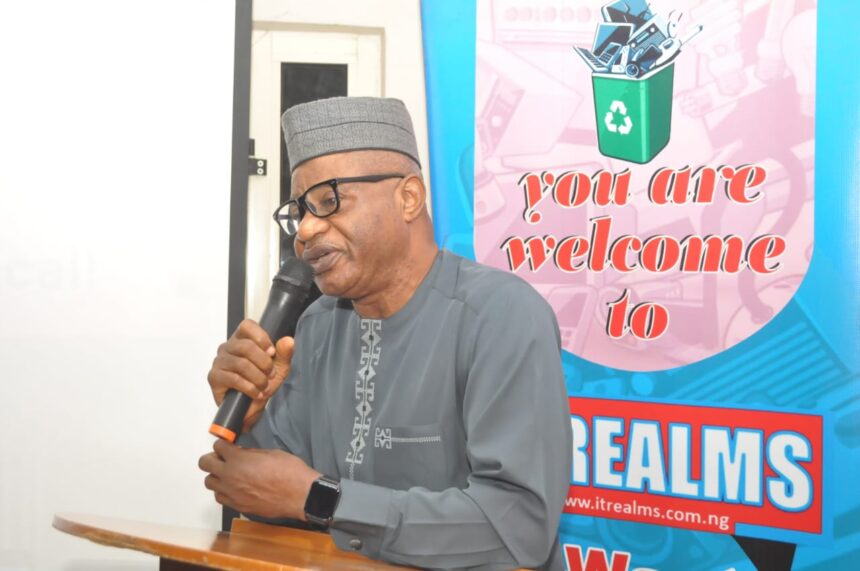Publisher of Political Economy and immediate past Vice President of the Guild of Corporate Online Publishers, GOCOP, Mr Ken Ugbechie, has warned that Nigeria’s rising “disposal culture” is accelerating the nation’s electronic waste burden.
This is even as he urged the National Environmental Standards and Regulations Enforcement Agency, NESREA, to significantly increase its budget for public enlightenment and media outreach.
Speaking at the 2025 ITREALMS E-Waste Dialogue organised by ITREALMS Media group, with the theme “Nigeria: Recycle Your E-Waste It’s Critical”, Ugbechie described e-waste as a “crucial national emergency,” stressing that Nigerians must be made to understand the economic value hidden in discarded electronic devices.
“The global value of e-waste is about $58 billion. Every piece of e-waste is cash. This thing you are throwing away, this thing you see as refuse, has value. And when you put value to something, you don’t trash it,” he said.
Ugbechie criticised Nigeria’s deepening “show-off” and disposable consumption habits, pointing out that many consumers replace devices not out of necessity but to appear trendy.
“We are stupendously extravagant as a people. You buy a phone today, two months later you throw it away to buy another just to show you are in town. Manufacturers exploit this behaviour and know exactly where to dump inferior products,” he noted.
He warned that the behavioural pattern not only encouraged reckless disposal but also incentivised the importation of substandard electronics into the Nigerian market.
Ugbechie further highlighted the severe health dangers associated with unmanaged e-waste, noting that toxic substances such as mercury and lead seeped into the soil and water systems.
“E-waste is carcinogenic. When these substances wash into our environment, they enter our lungs and skin. That is why cancer and related diseases are rising, especially among the younger population,” he said.
He called on government agencies to professionalise e-waste handling and ensure harmful materials did not continue to contaminate the environment.
While acknowledging NESREA’s regulatory mandate, Ugbechie insisted that the agency must expand its public awareness efforts and create a structured ecosystem of collectors and recyclers.
“NESREA has to create different layers of people who can pick up e-waste. But most importantly, there must be continuous enlightenment. The behavioural pattern of the people is what drives this crisis,” he said.
Ugbechie ended with a call: “NESREA needs to increase its budget for media and publicity. Without massive enlightenment, this crisis will continue.”
The 2025 ITREALMS E-Waste Dialogue continued to spotlight the urgent need for coordinated national action, stronger regulation, and sustained environmental education to curb Nigeria’s fast-worsening e-waste problem.
This year’s dialogue was supported by the ALTON, NCC, IXPN, NLNG, NESREA and EPRON while students from several schools were in attendance including ReapVille Schools, St Joachim College, Upland College and
Stigal Int’l Schools among other stakeholders.
READ ALSO:
BREAKING: Abducted Kebbi girls regain freedom, Tinubu speaks
Alleged murder: Chidinma says she regrets Ataga’s death
Nigeria recorded N2.06trn VAT in Q2 2025, says NBS
Insecurity: South West governors strategise, unveil counter-plans
WES 2025: WorldStage boss advises Tinubu on state of insecurity
NNPC Limited declares ₦5.4trn profit after tax
Five to die by hanging over murder of taxi driver in Ibadan
Tech Fair 5.0: Zenith Bank empowers Africa’s tech revolution with ₦140m
Opeyemi Omotayo: 25 years without Sogunro’s patron saint














